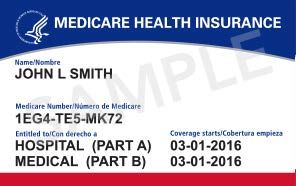Don't navigate the complex World of Medicare Alone.
Let us guide you to the perfect plan and unlock the peace of mind that comes with comprehensive healthcare coverage.

What is Medicare:
Medicare is a federal health insurance program in the United States that primarily provides coverage for people who are 65 years of age or older, as well as certain younger individuals with disabilities and those with end-stage renal disease.
Medicare is divided into several parts, each providing different types of coverage:
- Part A: Hospital Insurance, which covers inpatient hospital stays, skilled nursing facility care, hospice care, and some home health care.
- Part B: Medical Insurance, which covers doctor visits, outpatient care, preventive services, and medical equipment.
- Part C: Medicare Advantage, which is an alternative to Parts A and B and offers coverage through private insurance companies approved by Medicare.
- Part D: Prescription Drug Coverage, which helps cover the cost of prescription drugs.

Medicare Part B:
Medicare Part B is a federal health insurance program that is part of the larger Medicare program. It is designed to provide medical insurance coverage to eligible individuals, including those over the age of 65 and certain disabled individuals. Part B is often referred to as "original Medicare."
Benefits covered under Medicare Part B
Include doctor visits, outpatient medical and surgical services, preventive services, durable medical equipment, and some home health care services. It also covers some lab tests, x-rays, and mental health services. Unlike Medicare Part A, Medicare Part B requires beneficiaries to pay a monthly premium, and it typically covers 80% of the approved amount for most covered services, with beneficiaries responsible for the remaining 20% through deductibles, copayments, and coinsurance.
To be eligible for Medicare Part B
You must be enrolled in Medicare Part A and you must be a U.S. citizen or permanent resident who is at least 65 years old or under 65 and receiving disability benefits. If you are not automatically enrolled in Medicare Part B, you can enroll during the Initial Enrollment Period (IEP) or during the Annual Enrollment Period (AEP).
It's important to note that Medicare Part B does not cover all medical expenses and that you may need to consider purchasing a supplemental insurance plan to help cover some of the costs that Medicare Part B does not cover.
Difference between Medicare and Medicaid ?
Medicare is federal health insurance for anyone age 65 and older, and some people under 65 with certain disabilities or conditions. Medicaid is a joint federal and state program that provides health coverage for some people with limited income and resources. Medicaid offers benefits, like nursing home care, personal care services, and assistance paying for Medicare premiums and other costs.

